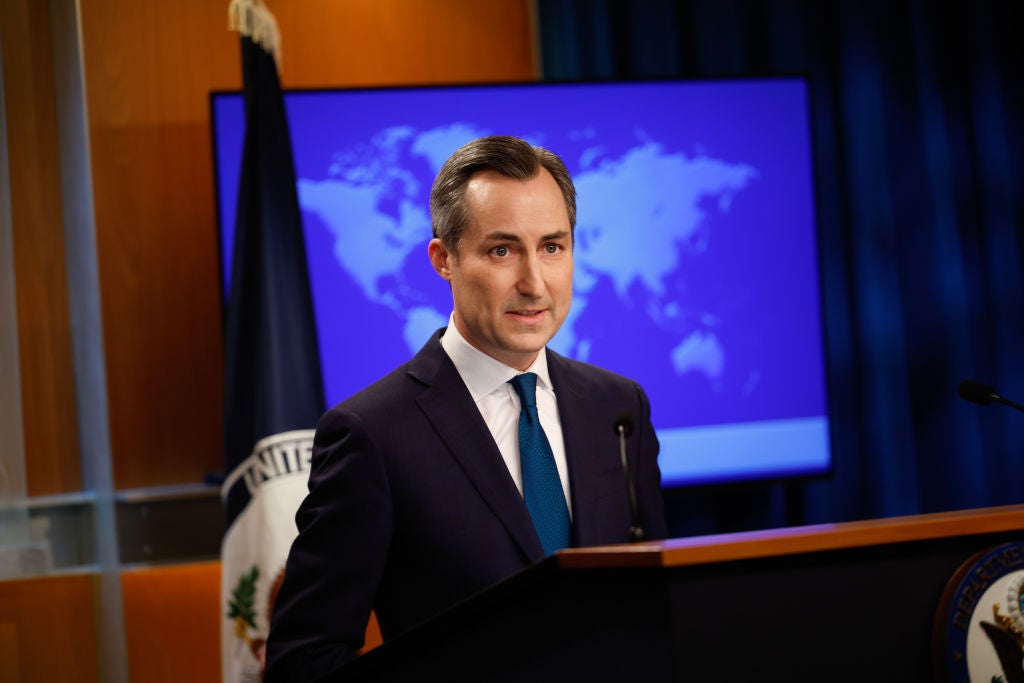State Department describes US role in helping escaped Yazidi woman flee Gaza
More than 2,600 Yazidi non-combatants remain unaccounted for, a decade after their capture
Your support helps us to tell the story
From reproductive rights to climate change to Big Tech, The Independent is on the ground when the story is developing. Whether it's investigating the financials of Elon Musk's pro-Trump PAC or producing our latest documentary, 'The A Word', which shines a light on the American women fighting for reproductive rights, we know how important it is to parse out the facts from the messaging.
At such a critical moment in US history, we need reporters on the ground. Your donation allows us to keep sending journalists to speak to both sides of the story.
The Independent is trusted by Americans across the entire political spectrum. And unlike many other quality news outlets, we choose not to lock Americans out of our reporting and analysis with paywalls. We believe quality journalism should be available to everyone, paid for by those who can afford it.
Your support makes all the difference.The State Department said on Thursday that US officials had played a role in aiding the Iraqi government repatriate a Yazidi woman who surfaced in Gaza after freeing herself from captivity. She did so when her captor, a Hamas militant, died.
Matthew Miller described to reporters at his daily briefing that the US had not been involved in her escape, but aided in getting her out of Gaza and back to her familly in Iraq after being contacted by the Iraqi government for help. The woman, who was not named, was kidnapped by Isis militants during the group’s rampage across Iraq, entering captivity and a forced marriage when she was just 11 years old.
Her captors sold her to a Hamas militant in the Gaza Strip, Miller said on Thursday, where she had been living against her will ever since.
“The circumstances of this case are really, really hard to describe,” Miller told reporters. “This is a now young woman who, 10 years ago, when she was an 11-year-old girl, was kidnapped by Isis in Iraq, sold and forced to marry a Hamas fighter in Gaza and moved to Gaza against her will.”
“The recent death of her captor in Gaza allowed her to escape, and we were contacted by the Iraqi government, who was made aware of the fact that she escaped, that she was alive, and that she wanted to come home to her family,” Miller continued. “The government of Iraq asked us to do whatever we could to get her out of Gaza and get her home. So over the past few weeks, we worked with a number of our partners in the region to get her out of Gaza.”
Miller said that those partners included the government of Israel, and added: “I can say now that she is safely home with her family in Iraq.”
Miller further noted that this was the only case he was aware of where a kidnapped Yazidi Iraqi had resurfaced in Gaza, while at the same time noting “there may be others”.

The reported chain of events, if accurate, is a revealing look into the often contradictory world of armed militant groups in the region. Hamas and Hezbollah, the two groups currently engaged in regular combat with Israel, are both funded and aided militarily by the Iranian government and its other aligned forces throughout the Middle East. Isis, by comparison, publicly calls Shia-dominated Iran its enemy.
Around 2,600 Yazidi non-combatants, many of them young children at the time of their capture, remain unaccounted for in the wake of Isis’ territorial defeat in Iraq and Syria. The group is still thought to have pockets active across the region, including in Afghanistan; the US military estimates that roughly 2,500 fighters are at large across Iraq and Syria, and a further 2,000 are thought to reside between Afghanistan and Pakistan.
Join our commenting forum
Join thought-provoking conversations, follow other Independent readers and see their replies
Comments